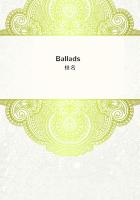1
LET us explain the nature of the sea and the reason why such a large mass of water is salt and the way in which it originally came to be.
The old writers who invented theogonies say that the sea has springs, for they want earth and sea to have foundations and roots of their own. Presumably they thought that this view was grander and more impressive as implying that our earth was an important part of the universe. For they believed that the whole world had been built up round our earth and for its sake, and that the earth was the most important and primary part of it. Others, wiser in human knowledge, give an account of its origin. At first, they say, the earth was surrounded by moisture. Then the sun began to dry it up, part of it evaporated and is the cause of winds and the turnings back of the sun and the moon, while the remainder forms the sea. So the sea is being dried up and is growing less, and will end by being some day entirely dried up. Others say that the sea is a kind of sweat exuded by the earth when the sun heats it, and that this explains its saltness: for all sweat is salt. Others say that the saltness is due to the earth. Just as water strained through ashes becomes salt, so the sea owes its saltness to the admixture of earth with similar properties.
We must now consider the facts which prove that the sea cannot possibly have springs. The waters we find on the earth either flow or are stationary. All flowing water has springs. (By a spring, as we have explained above, we must not understand a source from which waters are ladled as it were from a vessel, but a first point at which the water which is continually forming and percolating gathers.)Stationary water is either that which has collected and has been left standing, marshy pools, for instance, and lakes, which differ merely in size, or else it comes from springs. In this case it is always artificial, I mean as in the case of wells, otherwise the spring would have to be above the outlet. Hence the water from fountains and rivers flows of itself, whereas wells need to be worked artificially. All the waters that exist belong to one or other of these classes.
On the basis of this division we can sec that the sea cannot have springs. For it falls under neither of the two classes; it does not flow and it is not artificial; whereas all water from springs must belong to one or other of them. Natural standing water from springs is never found on such a large scale.
Again, there are several seas that have no communication with one another at all. The Red Sea, for instance, communicates but slightly with the ocean outside the straits, and the Hyrcanian and Caspian seas are distinct from this ocean and people dwell all round them. Hence, if these seas had had any springs anywhere they must have been discovered.
It is true that in straits, where the land on either side contracts an open sea into a small space, the sea appears to flow. But this is because it is swinging to and fro. In the open sea this motion is not observed, but where the land narrows and contracts the sea the motion that was imperceptible in the open necessarily strikes the attention.
The whole of the Mediterranean does actually flow. The direction of this flow is determined by the depth of the basins and by the number of rivers. Maeotis flows into Pontus and Pontus into the Aegean. After that the flow of the remaining seas is not so easy to observe. The current of Maeotis and Pontus is due to the number of rivers (more rivers flow into the Euxine and Maeotis than into the whole Mediterranean with its much larger basin), and to their own shallowness. For we find the sea getting deeper and deeper. Pontus is deeper than Maeotis, the Aegean than Pontus, the Sicilian sea than the Aegean; the Sardinian and Tyrrhenic being the deepest of all.
(Outside the pillars of Heracles the sea is shallow owing to the mud, but calm, for it lies in a hollow.) We see, then, that just as single rivers flow from mountains, so it is with the earth as a whole:
the greatest volume of water flows from the higher regions in the north. Their alluvium makes the northern seas shallow, while the outer seas are deeper. Some further evidence of the height of the northern regions of the earth is afforded by the view of many of the ancient meteorologists. They believed that the sun did not pass below the earth, but round its northern part, and that it was the height of this which obscured the sun and caused night.
So much to prove that there cannot be sources of the sea and to explain its observed flow.
2
We must now discuss the origin of the sea, if it has an origin, and the cause of its salt and bitter taste.
What made earlier writers consider the sea to be the original and main body of water is this. It seems reasonable to suppose that to be the case on the analogy of the other elements. Each of them has a main bulk which by reason of its mass is the origin of that element, and any parts which change and mix with the other elements come from it. Thus the main body of fire is in the upper region; that of air occupies the place next inside the region of fire; while the mass of the earth is that round which the rest of the elements are seen to lie. So we must clearly look for something analogous in the case of water. But here we can find no such single mass, as in the case of the other elements, except the sea. River water is not a unity, nor is it stable, but is seen to be in a continuous process of becoming from day to day. It was this difficulty which made people regard the sea as the origin and source of moisture and of all water. And so we find it maintained that rivers not only flow into the sea but originate from it, the salt water becoming sweet by filtration.
But this view involves another difficulty. If this body of water is the origin and source of all water, why is it salt and not sweet?
The reason for this, besides answering this question, will ensure our having a right first conception of the nature of the sea.














